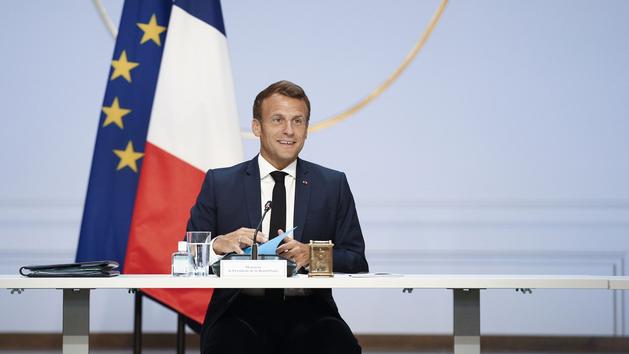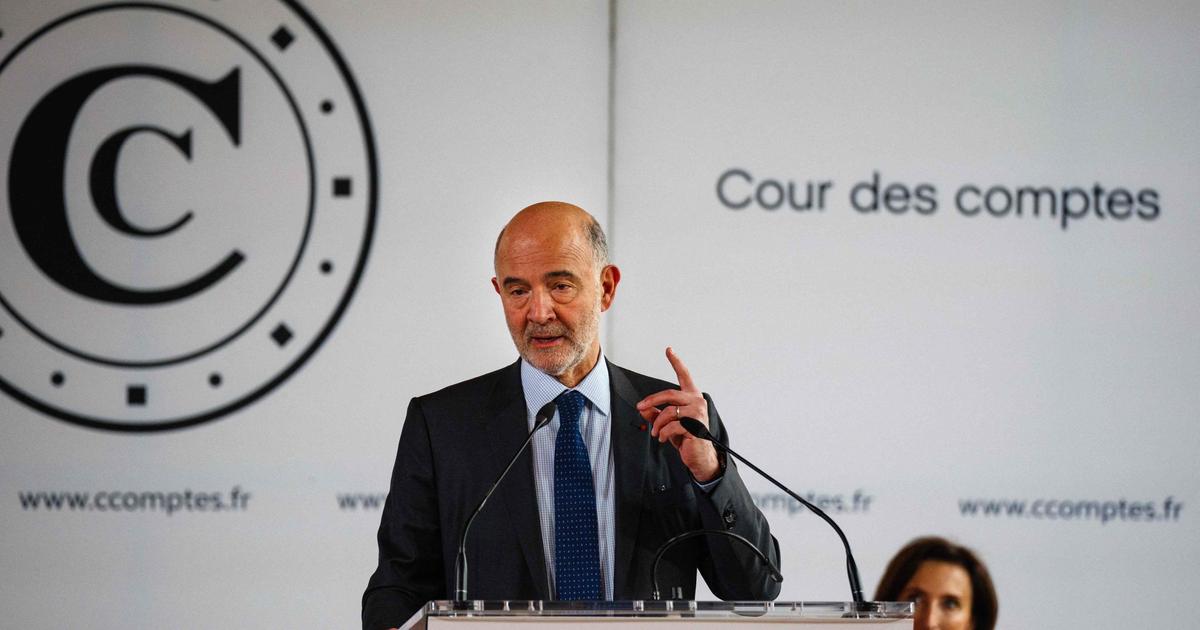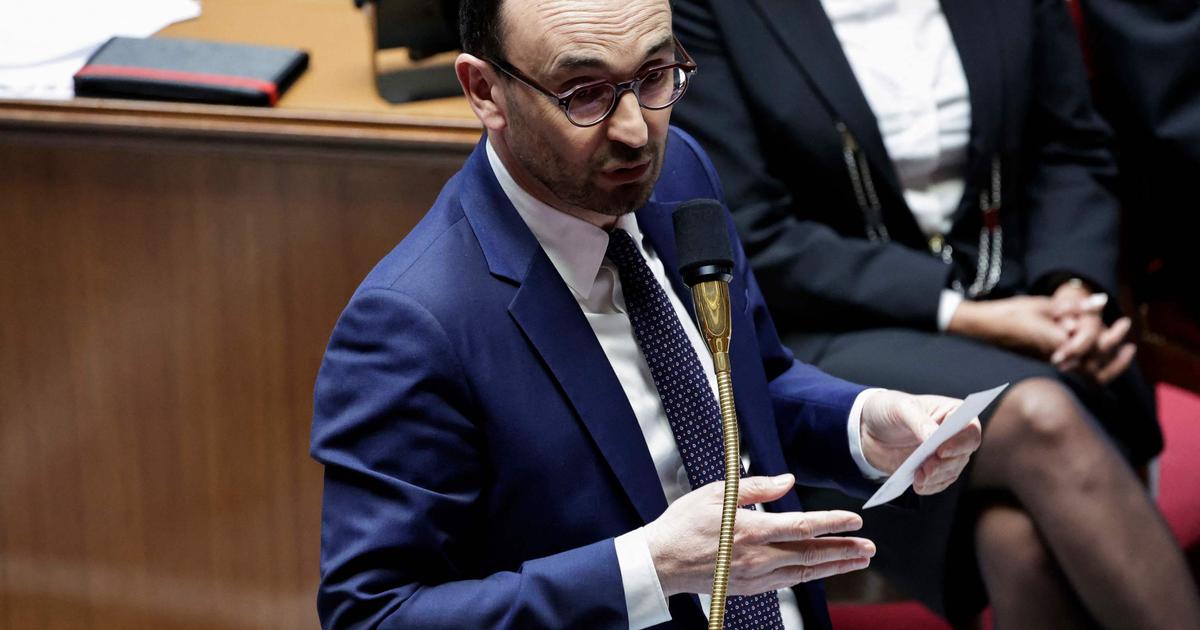Nicolas Goetzmann is responsible for research and macroeconomic strategy at Financière de la Cité.
FIGAROVOX.- Emmanuel Macron will address the French on Sunday evening and begin a "new stage", when the country is already experiencing the upheavals of an economic crisis of unprecedented scale. Can it stem the recession and the rise in unemployment without deviating from the trajectory outlined since the start of the five-year term?
Nicolas GOETZMANN.-Indeed, it seems that the President no longer wishes to deviate from his initial “course”. This impression is confirmed in the light of the various systems put in place to combat the crisis; we can see that the government does not want to spend too much. If the figures announced are significant - Bruno Le Maire speaks of “460 billion” - the reality is a little different. According to the opinion of the High Council of Public Finance, the expenditure that will impact the deficit for this year 2020 is 57 billion euros, or 2.6 points of GDP. The other measures put in place are useful, but do not have as great an effect. By way of comparison, spending with a budgetary impact exceeds 10% of GDP in Germany. For the United States, nearly 3000 billion dollars will be spent for 2020, or 11% of GDP. The figures will change further by the end of the year, but the French strategy is not that of a "massive recovery". However, the decline in French growth is among the worst in the world, ie -11% of GDP for 2020. This figure is also the result of the government's weak budgetary response.
When the government chose to proceed with containment, it had to announce a recovery plan that shows its willingness to correct the effects.In recent weeks, we have seen that some members of the government wanted to adopt a strategy of lower wages, which would also be the choice of the Élysée. The summary of the sequence is that it was the government's passivity to health at the start of the crisis that caused the decision to strictly contain it in mid-March. However, it is this decision which is at the origin of the major economic crisis that we are going through. Under these conditions, whether from a political or economic point of view, the choice to lower wages would not be wise. Employees and companies have no responsibility in this crisis, it is up to the authorities to take over and take responsibility for the situation. That is to say the European Central Bank in the first place, which it does, but also the budgetary power which must do what is necessary to cushion the shock that we are suffering as well as possible. When the government chose to proceed with this containment, it had to announce - as soon as possible - a recovery plan large enough to show its willingness to correct the effects. What has been put in place is still insufficient.
Will European negotiations around a massive recovery plan make it possible to sustainably support the continent's industry? Should we fear that Germany will put institutions under guardianship?
The European “massive” recovery plan is announced for an amount of 750 billion euros. If we go into detail, we see that the plan specifically dedicated to the current crisis is the “Recovery & Resilience Facility” of 560 billion. Of this amount, only 310 billion are grants to member states, the rest are just loans. France will receive 10.3% of these subsidies (around 31 billion) which corresponds to 1.3% of the country's GDP. But this sum will be paid over the years, over a long period whose starting point is the second quarter of 2021. Based on current forecasts, France could reach 2 billion in 2021 (0.08% of GDP, then more important in 2022 and 2023). It is therefore difficult to speak of a massive recovery plan under these conditions. If there is a recovery plan in Europe, it is on the side of the European Central Bank that we must look, even if it could still do much more.
The success of the government's reaction, both from a health and economic point of view, will strengthen Germany's dominant position.Paradoxically, and contrary to what was done during the 2008 crisis, Germany is currently supporting a growth policy. The fiscal stimulus plan put on the table by Angela Merkel is more ambitious than we could have anticipated. On the other hand, it is clear that the success of the government's reaction, both from the health and economic point of view, will continue to strengthen the dominant position of Germany in Europe.
Should Europe seize the opportunity offered to it to no longer be the big loser in the trade war raging between China and the United States?
The European position vis-à-vis China is contradictory. During the confinement, many voices were heard to reduce our dependence on Chinese production. This is less the case today, especially because we still hope to benefit from Chinese consumption. However, when we look at the latest figures, we can see that Chinese imports have collapsed, while European imports from China have suffered a more moderate decline. In other words, the European trade deficit with China continues to widen. Europeans' fear of China is not understandable, because China is more dependent on us than it seems.
Read also: European recovery plan: the German bet of Emmanuel Macron
Conversely, Europe risks repeating its 2008 strategy with the United States, which consisted in taking advantage of American growth to support its exports, while at the same time, the weak European growth acted as a brake on imports. The United States complained about this strategy in 2010, with Barack Obama. It is likely that Donald Trump does not appreciate more.
Europe must assume its force vis-à-vis China and it must correct the fire with the United StatesEurope is not a victim. It must assume its strength against China and it must correct the situation with the United States. The right strategy would undoubtedly be to join the United States to put an unsustainable commercial pressure on China, and to make sure to coordinate more equitably, on both sides of the Atlantic, on a support for policies of growth.
As the debt of European countries is widening again, is there not a risk of losing even more control over our financial sovereignty?
The debt of European countries is not increased by the increase in spending but by the fall in growth. When we look at the French situation, we see that the debt will drop from 98.1% of GDP in 2019 to 120.9% in 2020. This makes 23 points of difference. 60% of this increase is explained by the fall in GDP, 25% by the fall in tax revenue, and only 15% by the increase in public spending. The fall in growth is therefore responsible for 85% of the increase in indebtedness and it is therefore by supporting growth that we can regain control of the debt, which is the role of the ECB and of power budgetary. And regarding financial sovereignty, it seems to be quite the opposite. The American economist Nathan Tankus sums up the situation well "It is the extraordinary amount of the debt denominated in dollar which ensures the strengthening of the monetary sovereignty of the United States to the detriment of all the others" "This is what makes the dollar a monetary hegemon. "









